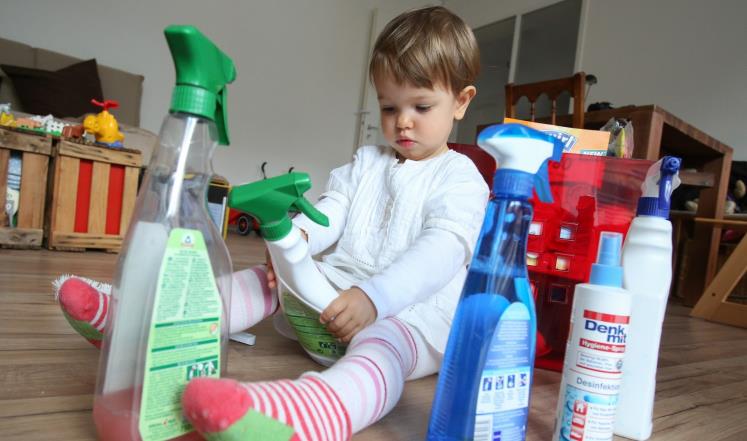Accidental poisoning in children
Accidental poisoning is very common among toddlers, especially because they keep on exploring their environment and surroundings as part of their normal growth development. They are inquisitive about new things and often try to open containers and do what they see their siblings or adults doing. While trying to discover new things they often put them in their mouth without knowing the harmful effects of swallowing poison. They are often attracted towards medications in tablets of capsules form as they look like lollies to them.
Things that may cause poisoning in your child at home
Most accidents usually happen at home when the substance is within the reach of a little child, but it is unattended by an adult. Many times it is seen that children try to climb high to open the cupboards if they find anything interesting kept inside. Some household things that can be poisonous to your child:
Medicines: We often keep few medicines handy at home like some paracetamol tablets, mouthwashes, antiseptics, herbal remedies and etc. but, if little kids consume them, it can cause harm to their body.
Cleaning products: Things like detergents, bleaches, floor cleaners, room deodorants are mostly kept within reach for regular use. Such items can cause harm to your child if consumed.
Cosmetics: Creams, shampoos, aftershaves, ointments etc. are also very harmful when used by small children without supervision.
Poisonous plants: There are many plants like mushroom, oleander, Datura and etc., which are very poisonous and children may get attracted to them due to their beautiful flowers or colored leaves.
Some signs of poisoning:
If you find any open container or bottle that contains chemicals or poisonous liquids, then immediately check if your child has swallowed something dangerous. Also try to understand any signs of poisoning in your child:
- Redness or burns around the mouth or lips of your child in case if he has swallowed something caustic.
- Stains or smells on your child or clothes or near her surroundings.
- Breath that contains smell of certain chemicals
- Some other symptoms may include vomiting, difficulty in breathing, confusion, fits or any other strange behavior.
What to do in case you child has been poisoned:
First of all, call an emergency help for first aid advice even if the symptoms have not developed. If you have a hospital nearby, then go there and consult a doctor in emergency department and keep your child under observation.
Swallowed poison: If you find your child has opened a bottle containing harmful chemicals, then first make him spit it out or remove it with your fingers. Don’t make your child vomit as it may cause more damage and if he is not breathing then immediately take him to the doctor.
Chemical on the body or skin: If your toddler has spilled a dangerous chemical on her body, then remove the clothes and rinse the skin with water at room temperature for about 15 minutes. Then call for help. Don’t use any creams or ointments unless suggested by the doctor.
Poison in the eye: If your child has got something into the eyes, then flush his eyes with room temperature water. Ask someone to hold your child while you rinse the eye. Continue to do this for 15 minutes and then take him to the doctor.
Parents should immediately contact their doctor of they observe any symptoms of poisoning in their child. Waiting to take a decision will only waste your precious time and increase complications.

































